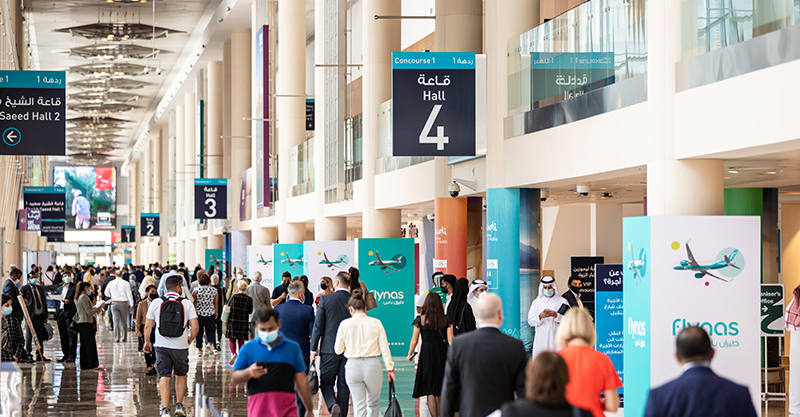ITIC Summit concludes successful return of live and in-person Arabian Travel Market calling on governments to unite in recovery efforts
DUBAI: The Middle East Tourism Summit, organized by the International Tourism and Investment Conference (ITIC) in partnership with Arabian Travel Market 2021, rounded off the Middle East largest travel and tourism showcase by calling for continued collaboration at government levels to support the recovery of the tourism industry in the region.
“Governments must come together. They must work together. There is no sense in any country working on its own anymore,” said Taleb Rifai, Chairman, International Tourism and Investment Conference (ITIC) and former Secretary General UNWTO.
The summit, which took place virtually on 27 May, was held under the theme ‘Invest-Rebuild-Restart the tourism industry in the Middle East’ and attended by high-level decision makers, professionals and investors who discussed the challenges, issues, opportunities, but more importantly the way forward for the tourism industry in the aftermath of the COVID-19 pandemic. The summit also focused on green sustainable investment, underscoring a new vision for responsible tourism recovery.
“Putting sustainability at the heart of the future development of the tourism industry in the Middle East will be crucial to meet the expectations of local and international visitors, who are now more socially aware and informed, than ever before. The industry has undoubtedly made huge strides in this area, with a range of initiatives across the sector positively impacting the environment,” said Danielle Curtis, Exhibition Director ME, Arabian Travel Market.
Elsewhere on the conference agenda on the final day of ATM, was an insightful session entitled ‘East Meets West: Lessons Learned Leading to Recovery and On-going Resilience’ with guest panelists from industry associations such as the International Air Transport Association (IATA), the World Travel & Tourism Council (WTTC) and the Pacific Asia Travel Association (PATA).
The overwhelming consensus was that it is extremely important that countries and destinations work together to share best practice and align protocols in order to get global travel restarted seamlessly and safely, a point reiterated by aviation experts earlier at ATM. According to the panel, the most pressing issues making the current situation so challenging for the industry is the fact that the situation remains unpredictable and there is a lack of clarity, which makes medium to long term planning very difficult.
Another popular seminar was a hotel summit session about the challenges to traditional hospitality, brought on by social distancing and the increased reliance on technology – impersonal by nature. A panel consisting of hospitality leaders, agreed that nothing would replace genuine hospitality, rather guests would decide what level of human interaction they were comfortable with – balancing safety with personal attention while maximising the efficiency of technology without compromising on service excellence.
ATM welcomed exhibitors from 62 countries and travel professionals from over 100 countries during the four-day event.










